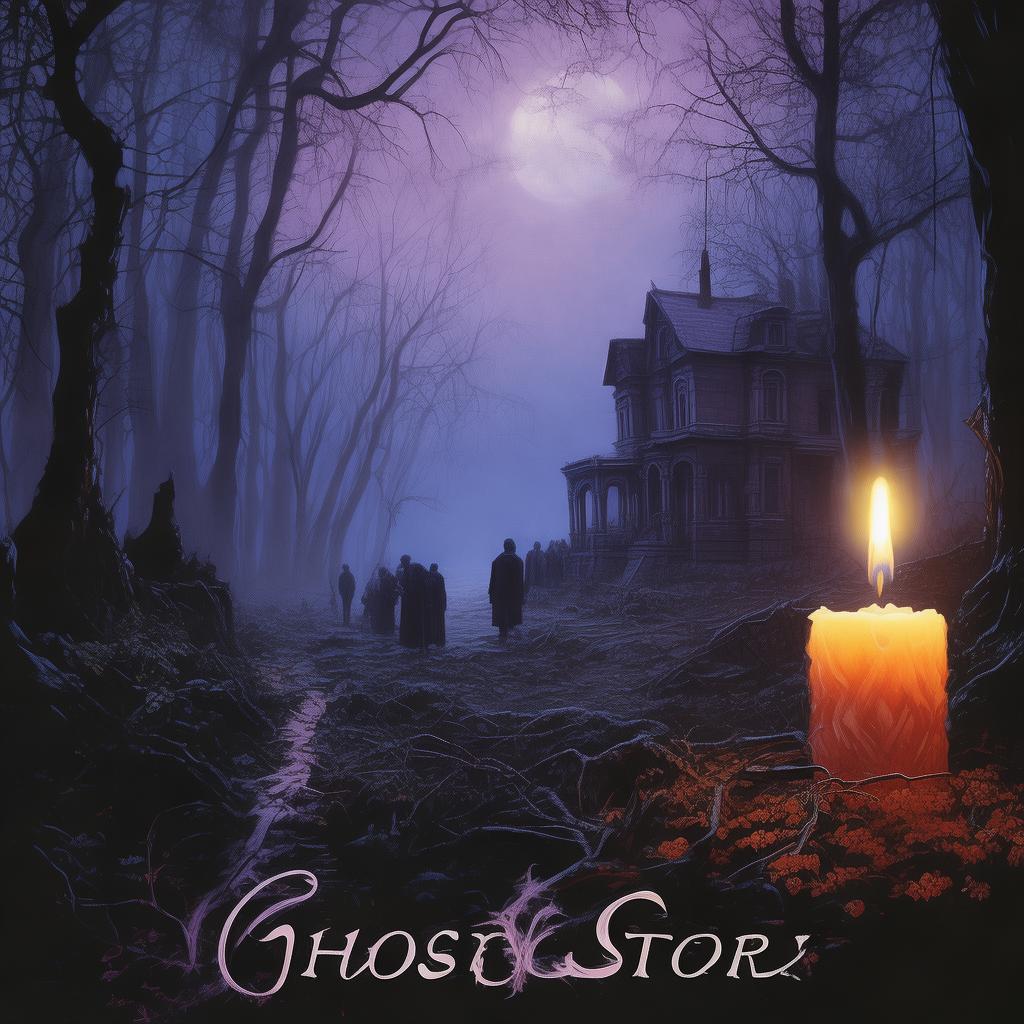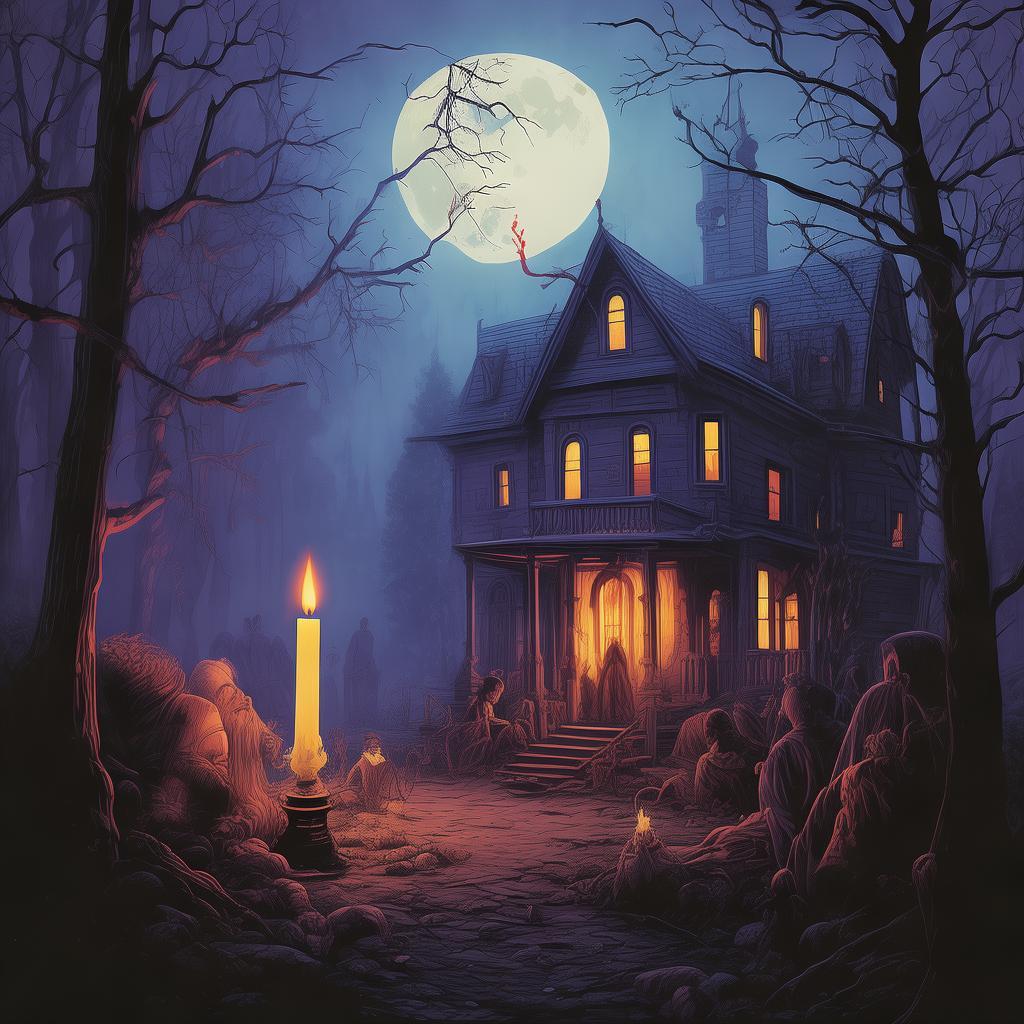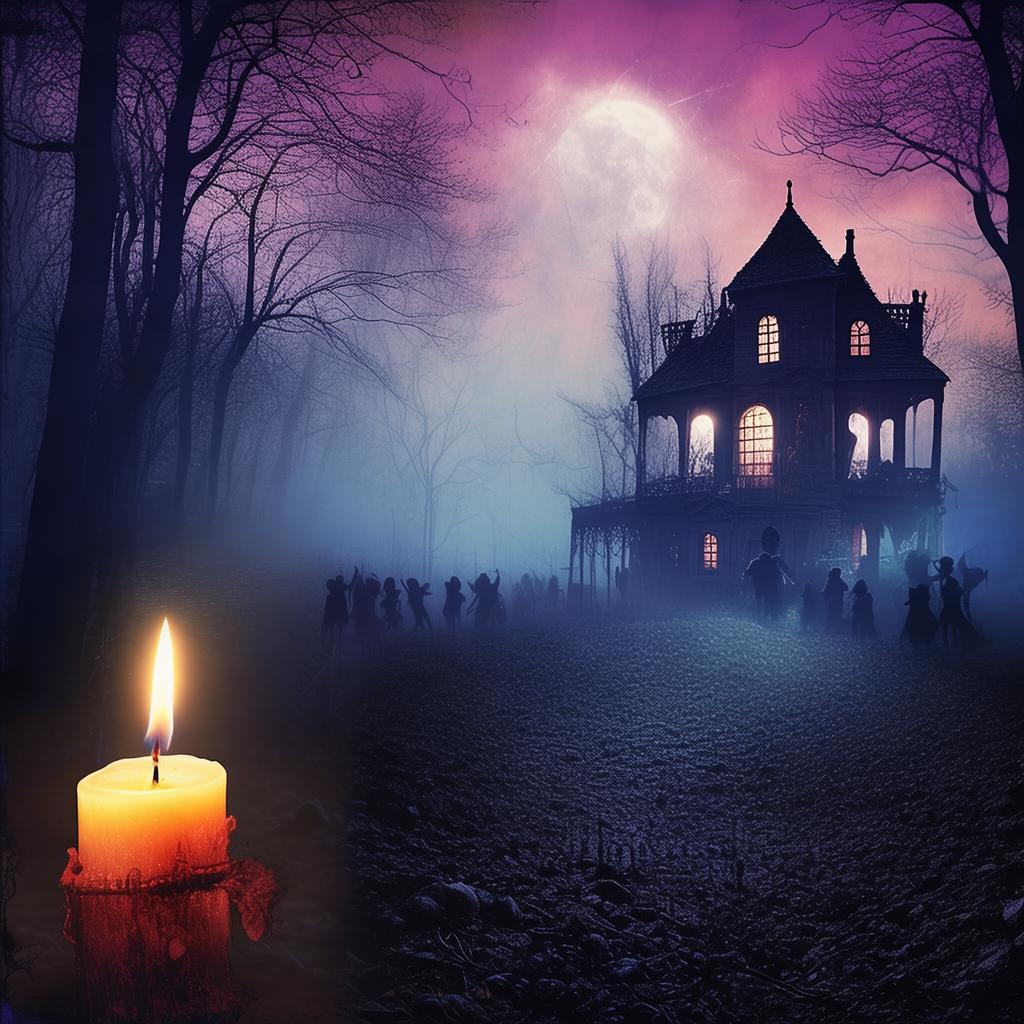Xi Lu's Shadow Play: A Haunting Drama
The stage was set, the spotlight piercing through the thick fog of uncertainty. In the heart of an old, abandoned theater, the actress, Li Wei, stood frozen, her breath fogging up the cold glass of her makeup mirror. The theater was a relic of a bygone era, its walls covered in cobwebs, the floor littered with the detritus of forgotten shows. She had been lured here under false pretenses, promised a part in a prestigious production that would skyrocket her career. But as the night deepened, the true nature of her task became alarmingly clear.
"Straight to the dressing room," the voice on the other end of the phone had said, urgent and unwavering. Li Wei's heart pounded as she followed the dimly lit path to a room adorned with velvet curtains and a heavy wooden chair. As she took her seat, a chill crept up her spine, and she couldn't shake the feeling that she was not alone.
The curtain rose, and Li Wei stepped onto the stage. The theater was silent, the audience unseen, yet she could feel their eyes on her, their anticipation building. She had been instructed to play a character from a shadow play, a story that had been passed down through generations in the remote village of Xi Lu. The story was of a love that transcended time, a betrayal that cursed the souls of those involved, and a performance that could only be halted by death.
The first act began with a haunting melody, the strings of a guzheng resonating through the air. Li Wei's character, a beautiful and enigmatic woman, stepped forward. She was to portray the innocence and the tragedy of her love, the betrayal by her husband, and the subsequent curse that bound her spirit to the shadow play forever.

As the play unfolded, Li Wei found herself drawn deeper into the story. The lines she recited, the emotions she felt, they were no longer hers. They were those of a woman from centuries past, a woman whose heart had been torn apart, whose love had been betrayed, and whose spirit lingered in the shadows of the theater. She was haunted, not by the specters that danced before her eyes, but by the echoes of a past she had never lived.
In the second act, the tempo quickened, the music became more frenetic. Li Wei's character was driven to madness by the betrayal of her husband, who had left her for another. She wept, she screamed, and in that moment, Li Wei felt her own soul shiver. The pain, the heartbreak, they were all too real.
But it was in the third act that the story took a dark turn. The husband, driven by remorse, had returned to his wife, but it was too late. She had been consumed by the curse, her spirit now bound to the shadows of the theater. The performance was her only solace, her only escape, but it was also her undoing.
Li Wei's own emotions were now a whirlwind of confusion and fear. She knew she was part of this story, but she also knew that her own life was in danger. The shadow play was not just a performance; it was a ritual, a curse that would claim the life of the actress who took on the role.
As the final act began, Li Wei found herself standing alone on the stage. The music had stopped, the audience was gone, and the only presence was the ghostly figure of her character, now a wraith in the flesh. She had no choice but to confront the truth: she was not just an actress, she was the cursed woman herself.
In a sudden twist of fate, Li Wei realized that the shadow play was not a curse but a gift. The woman she portrayed had loved deeply, and in loving, she had given her soul to the theater. Li Wei had to embrace the spirit within her, to accept the truth of her own life and the life of the woman she had become.
With a newfound resolve, Li Wei stepped into the role fully. She spoke the final lines, her voice breaking as she revealed the truth of her existence. The shadow play was halted, the curse lifted, and Li Wei's own spirit was freed. She collapsed to the stage, her body spent, but her soul at peace.
The curtain fell, and Li Wei opened her eyes. She was in the dressing room, the fog of confusion lifting. She had survived the shadow play, not just as an actress, but as the woman whose story had become her own. She had faced her deepest fears, confronted the truth of her past, and emerged victorious.
The next morning, Li Wei was found by the theater's caretaker, unconscious and shivering. She was rushed to the hospital, where doctors declared her lucky to be alive. The shadow play had been halted, the curse lifted, and Li Wei had returned to her life, forever changed by the experience.
In the weeks that followed, Li Wei's story became the talk of the town. People marveled at her bravery, at her willingness to face the shadows within her own soul. She had become a symbol of strength, a testament to the power of love and the courage to confront one's fears.
But Li Wei knew that the true power of the shadow play lay not in the performance itself, but in the journey it had taken her on. She had found herself, had come to terms with her past, and had embraced her future. And as she stepped back onto the stage of her life, she knew that she would never be the same.
The tale of Xi Lu's Shadow Play had been told and retold, its chilling performance a reminder of the power of love, the curse of betrayal, and the resilience of the human spirit. Li Wei had become an icon, her story a haunting drama that would live on for generations.
✨ Original Statement ✨
All articles published on this website (including but not limited to text, images, videos, and other content) are original or authorized for reposting and are protected by relevant laws. Without the explicit written permission of this website, no individual or organization may copy, modify, repost, or use the content for commercial purposes.
If you need to quote or cooperate, please contact this site for authorization. We reserve the right to pursue legal responsibility for any unauthorized use.
Hereby declared.









